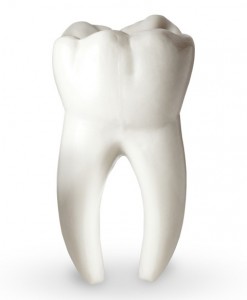 Most patients benefit for years following wisdom teeth removal. When the wisdom teeth are extracted, it can prevent problems such as abscesses, cysts, tumors, infection and other negative effects on a patient’s oral health. However, wisdom teeth removal does involve a surgical procedure, and in order to gain all of those benefits, patients must first have a successful postoperative recovery period. In fact, patients should begin to plan for follow-up with an oral surgeon as well as appropriate self-care techniques at the same time that they are preparing for the surgery. Unless complications arise, most patients will resume their normal activities within a matter of days. That being said, some patients may encounter setbacks as they heal following surgery.
Most patients benefit for years following wisdom teeth removal. When the wisdom teeth are extracted, it can prevent problems such as abscesses, cysts, tumors, infection and other negative effects on a patient’s oral health. However, wisdom teeth removal does involve a surgical procedure, and in order to gain all of those benefits, patients must first have a successful postoperative recovery period. In fact, patients should begin to plan for follow-up with an oral surgeon as well as appropriate self-care techniques at the same time that they are preparing for the surgery. Unless complications arise, most patients will resume their normal activities within a matter of days. That being said, some patients may encounter setbacks as they heal following surgery.
Preventing Dry Sockets
The most common complication following wisdom teeth extraction is dry sockets. This is a painful condition that occurs when the blood clots that provide a protective barrier for the empty sockets either never form or are dislodged prematurely. Patients can take some steps to reduce their chances of developing dry sockets, such as avoiding straws for several days or giving up cigarettes as they heal after the extraction. You’ll also want to avoid touching the area with your tongue. If you develop dry socket, you will need to return to our practice so that we can re-open the extraction site where a new clot can form.
Managing Discomfort and Swelling
Following wisdom teeth removal, you will need to take steps to reduce swelling and discomfort. The first 18 hours after treatment are crucial for keeping swelling to a minimum. To manage swelling, you should ice each side of your face after your appointment and the day following treatment. Whether you choose to take over the counter analgesics or are prescribed pain medication, be sure to follow our surgeon’s medication recommendations exactly as instructed to minimize postoperative discomfort.
Adopting a Liquid/Soft Diet
After treatment, a liquid and soft diet is very important. Hard edges of food and chewy items can irritate the extraction site and disturb the clot that forms where the tooth was removed. Also, because there will be some soreness after treatment, soft and liquid foods are easier to eat. Broths, smoothies, yogurt, and mashed potatoes make for good food options.
Maintaining Oral Hygiene
You should also take care to keep your mouth clean after wisdom teeth extraction. In the hours immediately following the surgery, you may need to stick to gentle mouth rinses to do so. After you get the OK to start brushing again, you still may need to adjust your technique for a few more days to avoid opening the incision. Get instructions on this from your oral surgeon.
Additional Factors to Consider
Infection is also a possible risk following wisdom teeth extraction, as it is with any surgery. The oral surgeon may prescribe a preventive course of antibiotics to reduce that risk, especially for patients who may be more susceptible to infection for any reason. Your age can affect your recovery too. Older patients generally take a longer period of time to bounce back after wisdom teeth extraction, which is one of many reasons why it is recommended that patients undergo the procedure before age 25.
If you are planning to have your wisdom teeth extracted, it’s important to understand and follow your oral surgeon’s post-operative instructions to improve your chances of an uneventful recovery. Be sure to discuss this aspect of the procedure during the treatment planning process.

Comments are closed.